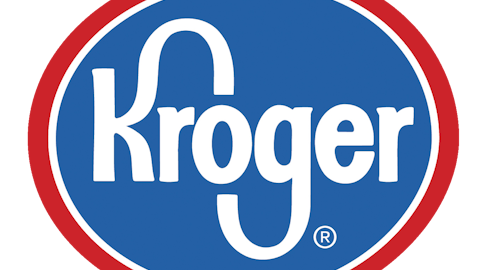It happens. Companies over-expand. It’s far from a death sentence, but it can be painful — at some point in the future, these corporations are forced to admit that they’ve invested too much, and must look to downsize.
In the past, holding the stock of these overzealous companies hasn’t been a pleasant experience.
Whole Foods Market, Inc. (NASDAQ:WFM) has been a tremendous growth stock in recent years. But its latest store opening caught my eye, and it may be a sign that the company has gotten too aggressive with its growth strategy.
Whole Foods in Detroit
Last week, Whole Foods opened its first location in Detroit. As one of the country’s major cities, that doesn’t seem particularly noteworthy. And yet, Detroit is unlike any other major city.
Detroit is the poorest large city in the US. Its median household income is about $25,000 — half the national average. The unemployment rate is 17.5%, well more than double the US average of 7.6%. The city could declare bankruptcy this year; if that happens, it will be the largest municipal bankruptcy in history.
That isn’t to say that the entire region is poor — far from it. The Metro Detroit area boasts some of the best suburbs in the country. Troy, for example, was ranked one of the nicest places to live. Birmingham was noted as being one of the richest.
There are Whole Foods Market, Inc. (NASDAQ:WFM) in the Metro Detroit area — five (now six) strategically located in some of the wealthier suburbs. Locations that make sense.
But Whole Foods Market, Inc. (NASDAQ:WFM)’ decision to put a store in Detroit itself doesn’t make sense. Whole Foods Market, Inc. (NASDAQ:WFM) built its store in an area of Detroit with a median household income of $18,796.
Although Whole Foods has made an effort to reduce prices, the moniker “Whole Paycheck” continues to stick. Building a store where the average family can barely afford to shop at ALDI — let alone Whole Foods — hardly seems like a recipe for success.
Detroit isn’t alone
But that’s just one store. Surely, a single store can’t have much effect on the overall company.
That’s true, I can’t dispute that. But it isn’t just one store. Whole Foods Market, Inc. (NASDAQ:WFM) seems to be on the verge of implementing an entire low-income strategy. In addition to the Detroit store, Whole Foods is planning to open stores in South Chicago and New Orleans.
Of course, management understands how insane this plan sounds. To keep costs contained, they’ve pledged to run with skeleton crews and offer more frozen foods at these new stores.
That sounds like a decent solution. But then there’s this: the company has been offering classes at community centers designed to teach people how to shop at Whole Foods Market, Inc. (NASDAQ:WFM).
Classes. To teach people how to shop.
Most retailers put their money in trying to get people into their stores, let alone teach them how to shop there!
Starbucks Corporation (NASDAQ:SBUX) struggled with overexpansion
Starbucks Corporation (NASDAQ:SBUX) struggled with overexpansion several years ago. In 2008, the coffee giant was forced to close 600 stores in the US. Shares hit a peak near $40 in 2006, before dropping into the mid teens in the summer of 2008 (before the financial crisis wreaked havoc on the broader market).






